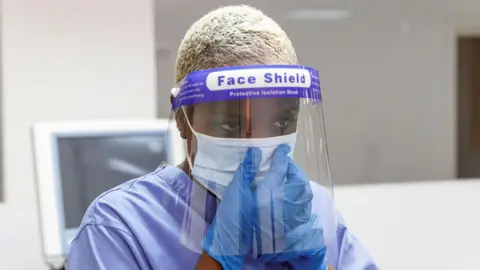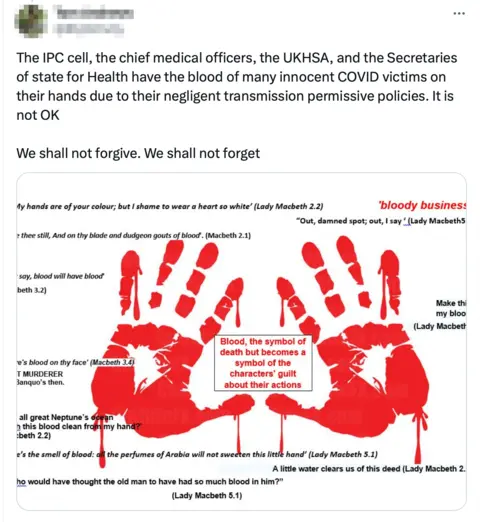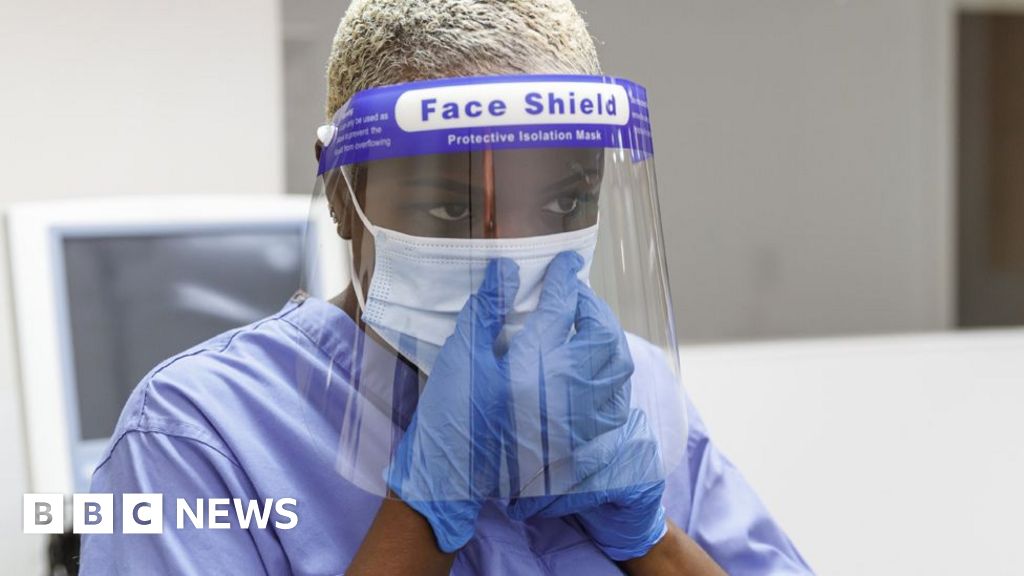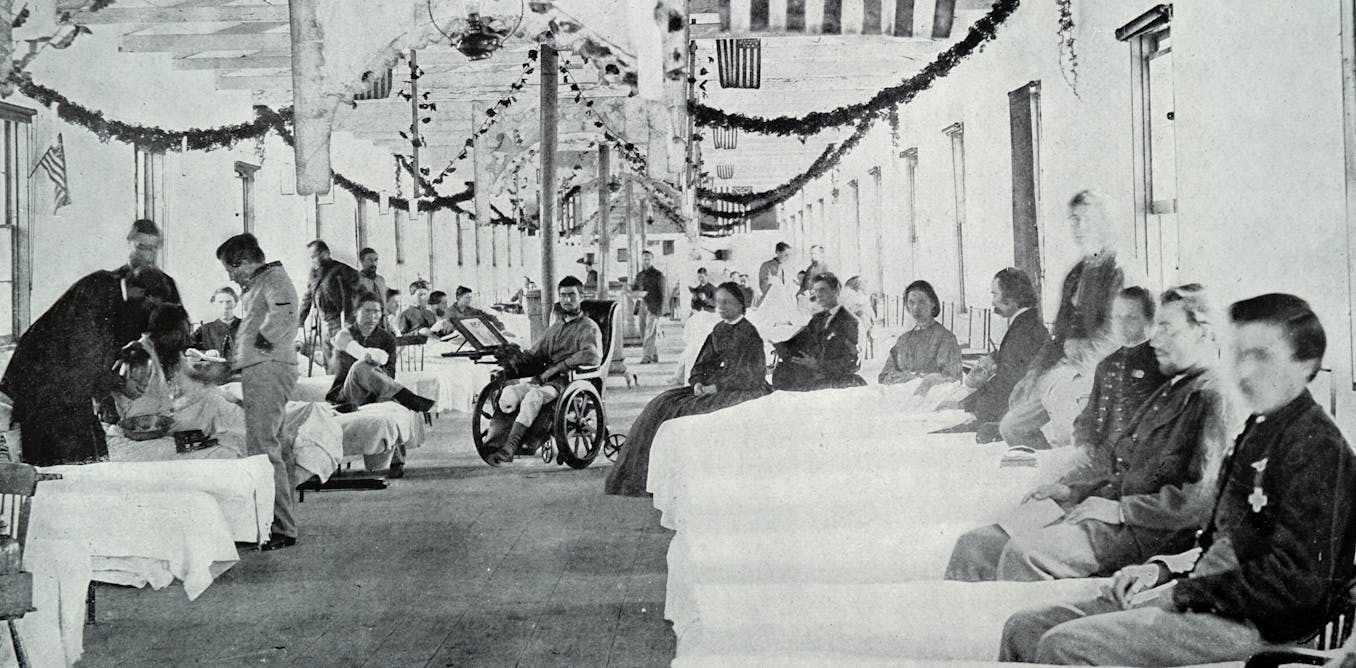 Getty Images
Getty ImagesThe chair of the Covid inquiry has refused an application from the UK Health Security Agency to keep the identities of two junior clinicians secret.
Lawyers for UKHSA applied for an order preventing publication of their names, on the grounds they could be subject to abuse and harassment on social media and in person.
Both individuals attended Infection Prevention and Control (IPC) Cell meetings to discuss the guidance on masks and personal protective equipment (PPE) during the pandemic.
Baroness Hallett ruled their names could be published in minutes of those meetings, as any risk was outweighed by the public interest in reporting on the group’s work.
‘Shadowy’ organisation
From February 2020 until it was disbanded in 2022, guidance on the use of PPE in healthcare settings was drawn up by the IPC Cell, a group of clinicians and officials from the NHS, government and public-health bodies such as Public Health England, which then Health Secretary Matt Hancock replaced with UKHSA in 2021.
Critics have said the IPC Cell was too slow to strengthen its recommendations on PPE after it became clear Covid could be spread by tiny airborne particles.
The Covid-19 Airborne Transmission Alliance (CATA), a group made up of healthcare organisations and individuals which campaigned for stronger guidance, has called it a “shadowy” organisation with “unclear” accountability structures.
UKHSA said the “heated and aggressive” public discourse around the subject meant there was a “high likelihood” junior members of staff could face online abuse if they were named in minutes published by the inquiry.
One social media post from 2022 accused the IPC Cell of having “the blood of many innocent Covid victims” on its hands, adding: “We shall not forgive. We shall not forget.”
Another, from early 2022, called the group “psychopaths, pure and simple”.

In her ruling, Baroness Hallett said she “deprecate[d] attacks and abuse of this kind on any public servant doing their job”.
But work of the IPC Cell was important to her investigation and the public should be able to assess the evidence in full, including the names and qualifications of those involved in meetings.
“On balance, I am not persuaded that there is an objective risk of harm or damage to the applicants should their identities be published,” she said.
Eight media organisations led by the Guardian newspaper had argued there was a public interest in knowing who had been involved in decision-making at the time.
‘Throats cut’
The abuse of scientists, medics and other officials involved in the pandemic response has been a theme running through the Covid inquiry.
Last week, England’s chief nurse from 2019 until July 2024, Dame Ruth May, spoke about the impact of “pretty horrible” comments online.
“Sometimes you have to make decisions, or be involved in decisions that mean that, on social media in particular, you are vilified,” she said.
In June 2023, England’s chief medical officer, Prof Sir Chris Whitty, said in his evidence that abuse and threats aimed at independent scientists could undermine the response to future health crises.
He is due to give evidence to the inquiry for the third time later on Thursday.
And in November 2023, Sir Chris’s former deputy, Prof Sir Jonathan Van Tam, told the inquiry his own family had been threatened with “having their throats cut” during the pandemic.




